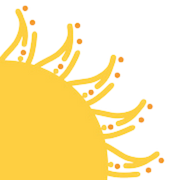Never too late...
A round-up of people who keep learning throughout life
Former meat cutter Susan McGregor entered graduate school when she was 41, something her co-workers didn’t understand. But earning a Ph.D. in bioinorganic chemistry four years later has provided opportunities she could never have dreamed of. As she recounts on NPR, “at 54, I deployed to Antarctica with the U.S. Polar Program. The year I turned 62, I spent a nine month winter at South Pole. I hold the record for the oldest female to ever overwinter at the South Pole.”
This is just one of the stories I collected about people who reinvent themselves later in life. Starting something new can be hard at any age, but it gets harder as you get older, as Tom Vanderbilt points out in his book Beginners. All the more inspiring are the people on this list. At an age when others settle into their tried and trusted ways, they challenge themselves to be beginners, for their own development, and also to put their interests and talents to good use for others. I love to produce these round-ups, and I know many of you enjoy exploring them. Sounds like a win-win. So here we go.
A collection of late-bloomers stories
Besides the antarctic scientist Susan McGregor, several other listeners tell their late-bloomers stories on NPR. You can read about a sailor, a songwriter, a zookeeper, a photographer, a pastry chef, and many others who created the lives they really wanted. Their paths haven’t always been easy. As Kenneth Reese, the late-blooming zookeeper, says:
It took me 20 years to make the leap of faith, to chase my dream, which is ironic since I've known what I wanted to do with my life since I was ten years old.
Taking on math at 60
Math defeated writer Alec Wilkinson in high school. In his 60s, he went back for more. The New York Times reviews Wilkinson’s book: A Divine Language. Learning Algebra, Geometry, and Calculus at the Edge of Old Age.
Getting a Ph.D. in Applied Ecology in your 60s
This is an older article, but still inspiring. In Science Magazine, Tracy Evans recounts how and why she started a Ph.D. in Applied Ecology when she was 60.
My career path has taken some sharp zigs and zags over my 40 years in the workforce. And each decision I made was the right one for me at the time. But when they were no longer right, I changed direction. No career decision has to be final. As one of my favorite authors, Ursula K. Le Guin, wrote, "It is good to have an end to journey towards, but it is the journey that matters in the end."
Becoming athletic in your 50s
“For my entire life, I was allergic to sports and exercise. Then I fell in love with long-distance cycling.” On Medium, the journalist Clive Thompson writes about how he took to the bike in his 50s.
Giving in to poetry in your 70s
On Oldster Magazine, Donna Spruijt-Metz, a professional flutist and then a psychology professor before becoming a poet, answers questions about aging, her life path, and how she feels today, at 72.
I feel young—or perhaps the right word here is “immature”—in that it took me so long to finally give in to poetry. And now that I finally have, or try to every day, I find that it is indeed hard and wonderful. I feel so new to it, there is so much I have to learn.
Five debut writers over 50
Here is the magazine Poets & Writers’ list of this year’s five debut authors over 50. Actually, it is more than just a list, as the introduction points out:
The stories on debut authors over the age of fifty who published their first books in the past year are narratives of resilience, of persistence, of writing through rejection and loss and, in some cases, through trauma. They are stories of problem-solving, of hard-earned realizations both private and public; stories of small failures, sure, but also stories propelled forward by success. Together they compose a single story of time, of perseverance, of the simple truth that it is never too late to be a writer, to tell your own story, and to share it with the world.
See you next Friday!
Logo & Banner Design by Judy Higgins




